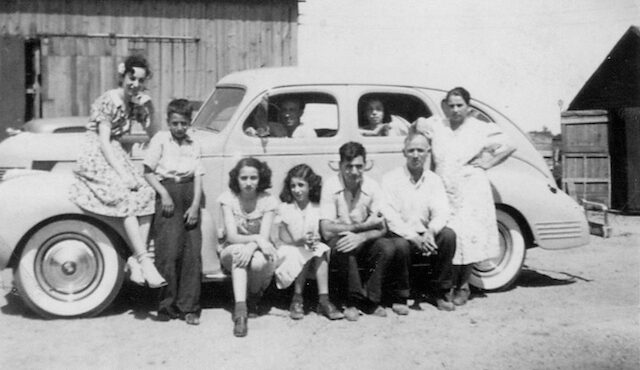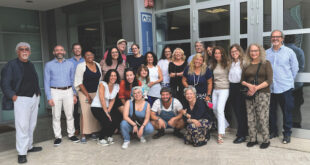
As an author, I’ve had the pleasure of meeting hundreds of Italian Americans at book signings. It’s always my pleasure to chat with these fine people.
I enjoy their family tales and always encourage them to tell the stories of their immigrant ancestors to their children and grandchildren to help preserve the memory of the incredible accomplishments of their forebears.
That’s not to say that only Italian immigrants had it rough. The opposite is true: All new arrivals struggle and immigration is still a challenge today.
I write about Italian immigrants and speak to groups about them coming to this country a century ago because, as the grandson of Sicilian immigrants on my mother’s side, I grew up hearing about their experiences, some of which were heroic, some funny and some tragic.
My concern has always been that the bravery, sacrifices and struggles of those early Italian immigrants will be lost in the mists of time simply because their stories are not being handed down from generation to generation.
That concern is heightened because Hollywood has largely ignored the wonderful legacy of these hard-working people and chosen to focus instead on a slim criminal minority.
In my humble opinion, the amazing triumph of the Italy-to-America immigration and assimilation experience is a far better narrative, and it absolutely cries out to be told by each of us.
Imagine leaving your homeland and the people you love: young men and women saying goodbye to parents, grandparents, aunts and uncles, siblings and cousins, knowing they will never see them again. It is utterly unthinkable and yet millions of Italian families did exactly that.
It’s difficult to understand how these humble arrivals prevailed a century ago, when most of them came here with little money, did not speak the language, faced enormous prejudice, and received little or no social services.
Making their transition even more difficult, the 1920s were a time of enormous social upheaval. A million soldiers had returned from war, taking most of the decent-paying jobs. Prohibition had become law, spawning dozens of criminal enterprises that ravaged the country, mostly the big cities, where many of our ancestors settled.
Prejudice against Italians was terrible. Job ads often specified “No Italians Hired.” Making matters worse, Italian immigrants were often victimized by their own countrymen. Criminals among them would steal, extort and beat new arrivals, making already challenging lives even more difficult.
These brave souls often took the most menial jobs for the least pay. Many worked long hours at backbreaking labor just to cover the rent and put food on their tables.
Assimilation was tough. Millions returned to Italy, but millions more stayed, believing that they would persevere and firm in their determination to make a better life for their children. We should all be grateful that they did.
This begs the question: How did they survive?
- First of all, our ancestors believed in the strength of family. They stayed together, loving, supporting, encouraging and protecting each other.
- Their faith in God was powerful and undeniable.
- They were welcomed into ethnic enclaves teeming with paesani who came before them.
- They bought from and sold to each other, helping their businesses thrive.
- They encouraged their children to become educated, to speak English and to become Americans.
- They worked hard and encouraged their children to do the same.
The history of Italian immigration cannot be told without recognizing and acknowledging the vital role played by women. Without those strong, determined individuals, success would have been far less likely. Women were the glue and the silent power that held families together, ensuring their survival. They were, in every sense of the word, equal partners with their hardworking husbands.
So please, everyone, tell your family stories. Write them down. Record them. Make sure that this generation and those to follow know what was done for them by the heroic men and women who came here from Italy a century ago.
 Fra Noi Embrace Your Inner Italian
Fra Noi Embrace Your Inner Italian






